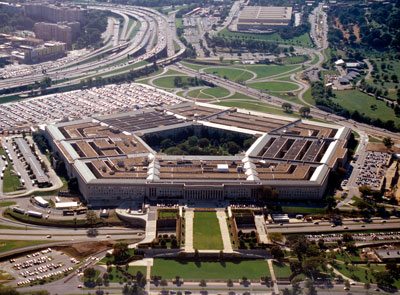The US intelligence chief revealed Wednesday that he dined with the North Korean general believed responsible for hacking Hollywood studio Sony, during a secret mission to Pyongyang two months ago.
Director of National Intelligence James Clapper gave a riveting account of the visit at a New York conference on cyber security days after the government imposed new sanctions on North Korea in retaliation for the late November attack.
He said it was “the most serious cyber attack ever made against US interests” that could potentially cost hundreds of millions of dollars in damages.
He said on November 7, the first night of his mission to free two Americans, he dined with General Kim, “in charge of the Reconnaissance General Bureau, the RGB, who’s the organization responsible for overseeing the attack against Sony.”
Clapper did not give the general’s full name but he apparently was referring to General Kim Yong-chol, director of the RGB, also known as Unit 586, one of three North Korean entities sanctioned by the United States in response to the Sony hack.
Clapper called the elaborate, 12-course repast “one of the best Korean meals I’ve ever had” but said the four-star general spent most of the time berating him about American aggression “and what terrible people we were.”
“All the vitriol that he spewed in my direction over dinner was real,” Clapper said.
“They really do believe they are under siege from all directions and painting us as an enemy that is about to invade their country every day is one of the chief propaganda elements that’s held North Korea together.”
He said the pair communicated through a North Korean translator who spoke fluent English “with a British accent, which was kind of strange.”
Kim kept “pointing his finger at my chest and saying the US and South Korean exercise was a provocation to war and of course not being a diplomat, my reaction was to lean back across the table and point my finger at his chest.”
At one point, his assistant suggested Clapper take a “head break” to ease the tension.
At the end, he described presenting Kim with a letter from President Barack Obama, designating Clapper as his envoy and saying that the release of the two US citizens would be viewed as a positive gesture.
He admitted the next day was “kind of nerve-racking” and that he was not sure if they would get the two Americans back or not.
“Kind of creepy”
At one point an emissary came to say North Korea no longer considered him a presidential envoy and as such could not guarantee his safety.
But in the afternoon, they were taken to a hotel for an “amnesty-granting ceremony” where the two Americans, still in prison garb, were handed over.
Afterward they headed straight to the airport and took off, he said.
“I can’t recall a time when that aircraft with United States of America emblazed across it ever looked as good,” he joked.
Clapper, who spent less than 24 hours in North Korea, said the first thing that struck him on arrival was how dark the city and airport were, and how the plane damaged a tire while taxiing because of poor runway construction.
He said people labored with old-fashioned tools and were eerily going about their business dressed in drab clothes.
“It was kind of creepy about how impassive everyone was. They didn’t show any emotion, didn’t stop to greet each other… I didn’t see anyone conversing or laughing,” he said.
Hackers attacked Sony Pictures in late November and threatened the company over the looming Christmas release of the comedy film “The Interview,” which depicts a fictional CIA plot to kill North Korea’s leader.
The threats led worried movie theater owners to drop the film and then Sony cancelled the public debut altogether, before releasing it online.
The FBI said North Korea was behind the Sony intrusion. Pyongyang repeatedly denied involvement but has applauded the actions of the shadowy hacking group.
“They are deadly, deadly serious, no pun intended, about affronts to the supreme leader, whom they consider to be a deity,” Clapper said Wednesday.
“I watched ‘The Interview’ over the weekend and it’s obvious to me that North Koreans don’t have a sense of humor.”
Sony said Tuesday that the film has been its best-grossing online film, making more than $31 million on the Internet and other small-screen formats.










